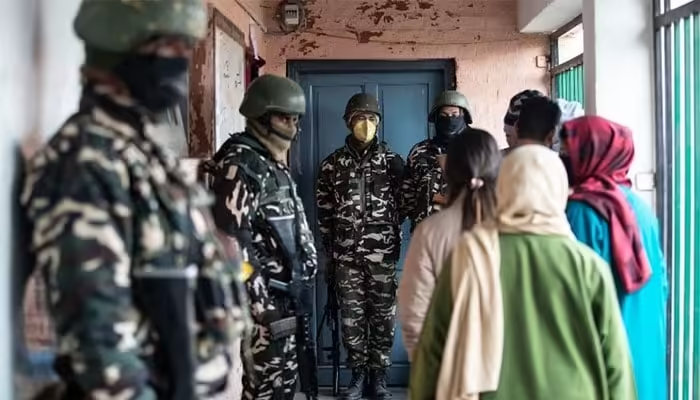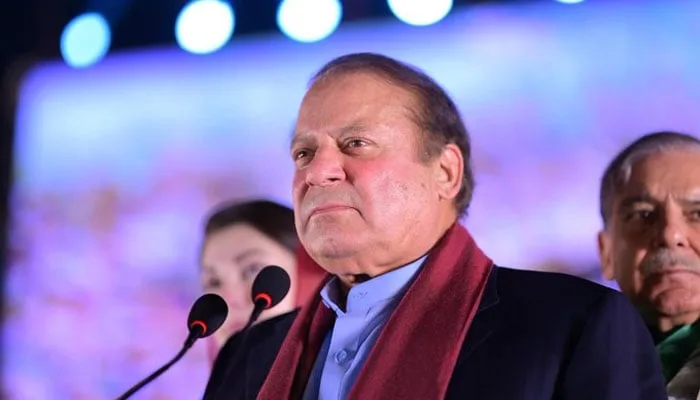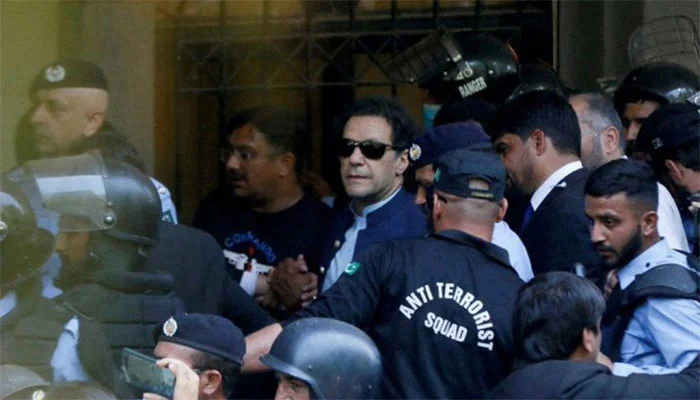The first phase of the so-called assembly elections in Occupied Jammu and Kashmir is set to take place today, marking the beginning of a contentious electoral process that has raised significant concerns both locally and internationally. Voting will be conducted across 24 constituencies from a total of 90, with 219 candidates competing for seats in the Occupied Jammu and Kashmir Assembly.
Voting Constituencies and Eligible Voters
Today’s elections will cover seven districts, with a registered voter base of 23,27,580 people eligible to cast their votes. These constituencies include three in the Jammu region—Doda, Ramban, and Kishtwar—and four districts in the Kashmir Valley—Anantnag, Pulwama, Shopian, and Kulgam. The polling hours have been scheduled from 7 a.m. to 6 p.m., and a significant workforce of 14,000 polling personnel has been deployed to ensure the voting process runs smoothly.
Background and Context
These assembly elections come nearly a decade after the last state elections, amidst an extremely turbulent political climate in the region. Since the abrogation of Article 370 by the Indian government in August 2019, which stripped Jammu and Kashmir of its special status, the region has faced heavy militarization, frequent curfews, and internet blackouts. The decision to hold elections now is seen by many as an attempt to consolidate India’s political control over the region.
The elections are also marked by the inclusion of votes from 35,000 Kashmiri Pandits, a move that has sparked widespread criticism from Kashmiri groups and activists. Many argue that this inclusion, along with other reforms, is part of India’s strategy to shift the demographic and political landscape of the region in its favor.
Key Political Players
In the last assembly, the Bharatiya Janata Party (BJP) and the People’s Democratic Party (PDP) were coalition partners. However, since the coalition collapsed in 2018, the BJP has sought to exert its influence directly over the region. The upcoming elections will be a test for the BJP’s ability to secure power in this politically sensitive area.
Other prominent parties include the National Conference (NC) led by Farooq Abdullah, the Indian National Congress (INC), and the Peoples Democratic Party (PDP) led by Mehbooba Mufti. These parties have expressed concerns over the fairness of the election process, citing the presence of security forces and the suppression of political dissent as key issues that may affect voter turnout and fairness.
Polling and Security Arrangements
Given the fragile security situation in the region, stringent security measures have been implemented. Thousands of security personnel have been deployed to prevent any potential unrest. In recent years, Occupied Jammu and Kashmir has experienced frequent clashes between Indian security forces and Kashmiri militants, leading to heightened tensions during any political event.
The high-security presence has raised concerns among local residents, many of whom feel intimidated by the heavy-handed approach. Moreover, the restriction of movement and frequent curfews in the lead-up to the elections have further dampened the spirit of democracy in the region.
Concerns Over Voter Turnout
One of the key challenges that these elections face is the potential for low voter turnout. Past elections in Occupied Jammu and Kashmir have seen significant boycotts by local residents, who view the electoral process as illegitimate under Indian rule. The current political climate, exacerbated by the abrogation of Article 370 and the ongoing unrest in the region, may lead to even lower participation.
Local leaders and activists have called for a boycott of the elections, claiming that any participation would be seen as an endorsement of India’s actions in the region. Despite these calls, the Indian government is pushing forward with the elections, viewing them as a step toward restoring “normalcy” in Jammu and Kashmir.
As the first phase of the elections begins, it is clear that this is not just a routine political exercise. The stakes are high for both the Indian government and the people of Occupied Jammu and Kashmir. While India hopes to use these elections to solidify its control over the region, the political and social tensions in the valley suggest that achieving peace and stability through electoral means may be more complex than anticipated.
The outcome of the first phase will set the tone for the subsequent phases of the election and will provide a clearer picture of the political landscape in the region. However, regardless of the election results, the deep-rooted grievances of the people of Jammu and Kashmir will likely continue to fuel unrest and calls for greater autonomy or independence.



